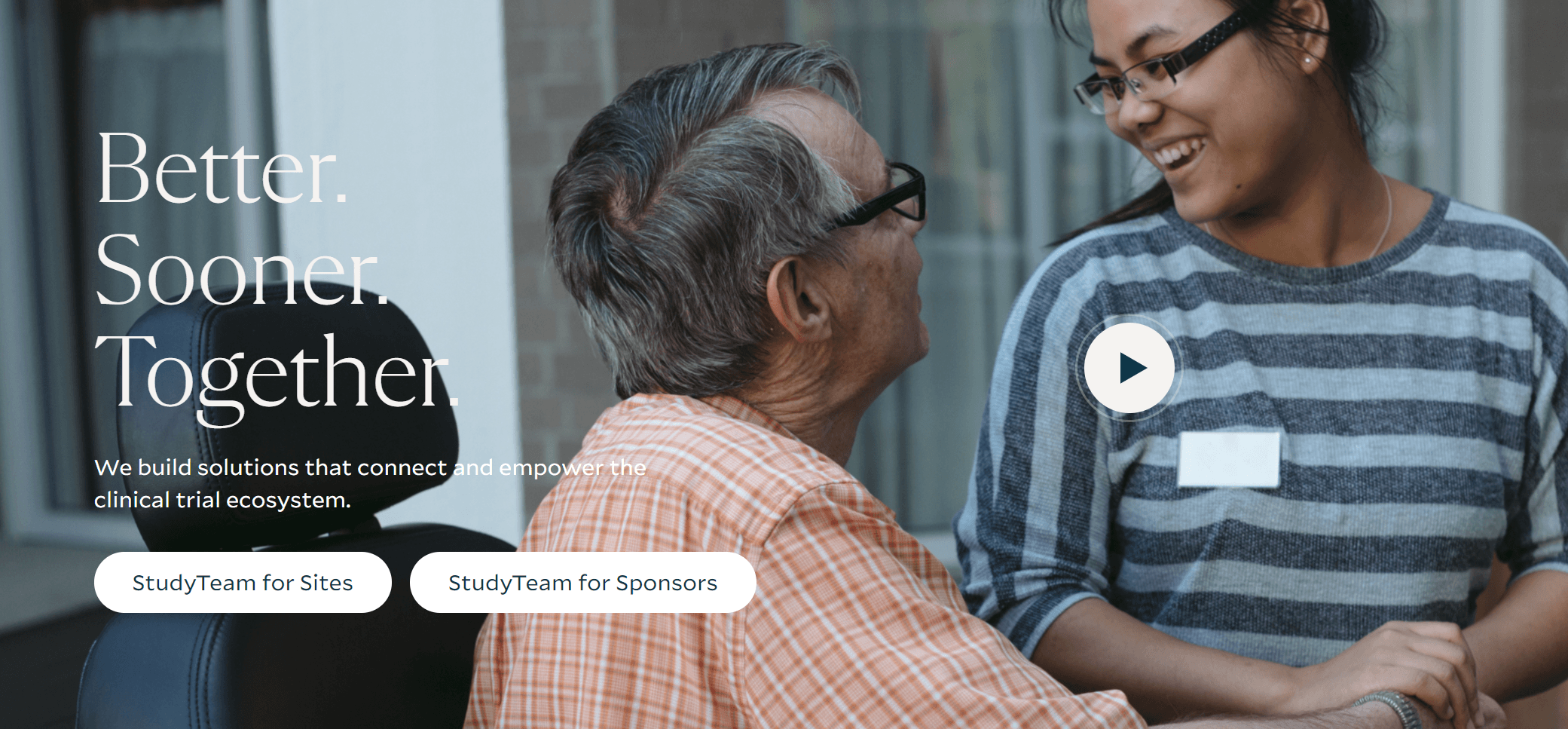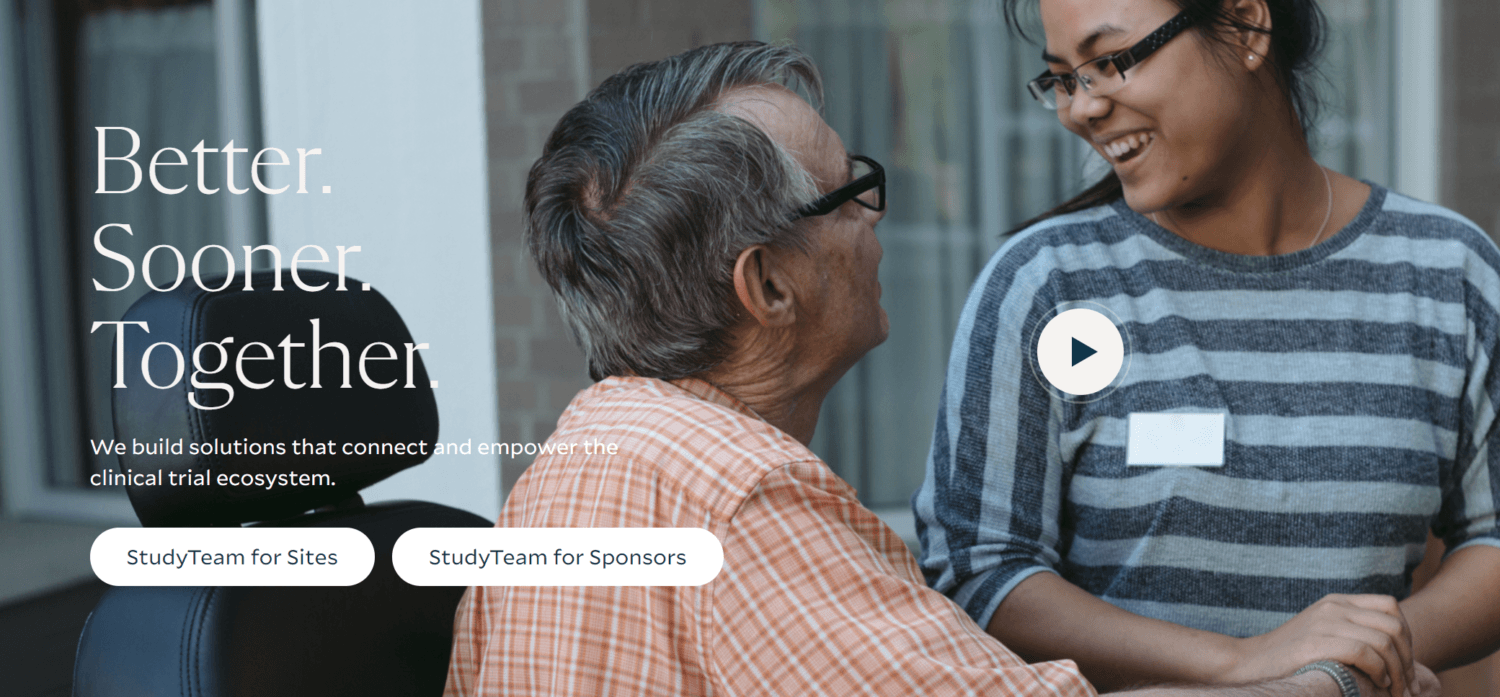

What You Should Know:
– Reify Health, a clinical trial software provider
that digitizes and accelerates clinical trials is announcing a $30 million
series B funding round to support the company’s ambitious mission to fix the
broken clinical trial ecosystem.
– The company’s platform, StudyTeam systematically
eliminates redundant work across the clinical trial process while generating
novel insights that speed up trials.
StudyTeam harmonizes biopharma and research site
workflows, introducing a new paradigm for clinical research that brings
therapies to patients sooner.
Reify Health, a
Boston, MA-based provider of leading cloud-based solutions that connect and
empower the clinical trial ecosystem, today announced a $30 million Series B funding
round led by Battery Ventures with
participation from previous investors including Sierra Ventures and Asset Management Ventures. The funding will
drive the continued expansion of Reify’s StudyTeam enrollment solution and
accelerate additional platform solutions.
Solutions to Accelerate Clinical Trial Enrollment
Founded in 2012, Reify Health works with an impressive
client roster including half of the top-20 biopharmaceutical companies,
including Eli Lilly and Amgen and has developed its platform, StudyTeam,
to upgrade the systems that healthcare staff at clinical research sites depend
on to run trials. By bringing them onto a shared platform with biopharma
sponsors, Reify has helped the industry dramatically
accelerate clinical trial enrollment and reduce workloads for
stakeholders across the ecosystem.
“The life science industry spends over four billion dollars
every year on technologies aimed at making clinical trials more efficient,”
said Ralph Passarella, CEO and co-founder, Reify Health. “Yet, very
little of that investment goes towards technology that helps the frontline
healthcare staff who enroll and care for patients. If we want to make clinical
trials faster, cheaper, and more predictable, the industry can’t keep building
technology that increases efficiency for some but decreases efficiency
for those working directly with patients. We decided that we needed to change
that.”
StudyTeam systematically eliminates redundant work across
the clinical trial process while generating novel insights that speed up
trials. For example, staff at research sites spend hours each week manually
copying information about patient recruitment and enrollment from their own
systems into sponsor logs so that sponsors have the insights they need to
manage and optimize enrollment.
With StudyTeam, this hours-long task takes just a few
minutes, enabling site staff to spend more time with patients. At the same
time, sponsors gain better insights for making real-time enrollment decisions.
As a result, StudyTeam accelerates enrollment, on average, by 6 weeks per
trial. When 80 percent of trials fail to recruit enough patients on time, this
improvement can be seismic.
Patient Recruitment and Enrollment
Reify’s StudyTeam platform is used by 1,800 research sites across 26
countries and by half of the top-20 global biopharma companies, including
Eli Lilly and Company and Amgen. The platform has been so effective in
improving enrollment dynamics between research sites and sponsors that several
top-20 biopharma companies are in the process of implementing the product
across their global research portfolios.
“The COVID pandemic has shed light at a global scale how much clinical trial speed matters. While the world sits and waits for COVID-19 vaccines and treatments, we should also remember that patients suffering from numerous conditions such as Alzheimer’s and late stage breast cancer have been waiting on clinical trials for years,” said Michael Lin, co-founder and executive chairman, Reify Health. “At Reify we’ve made it our job to build solutions that streamline work for both research sites and biopharma sponsors so that patients get access to therapies sooner. Doing so has required us to overhaul how we think about solution categories, software business models, and the relationships across the entire clinical trial ecosystem.”
